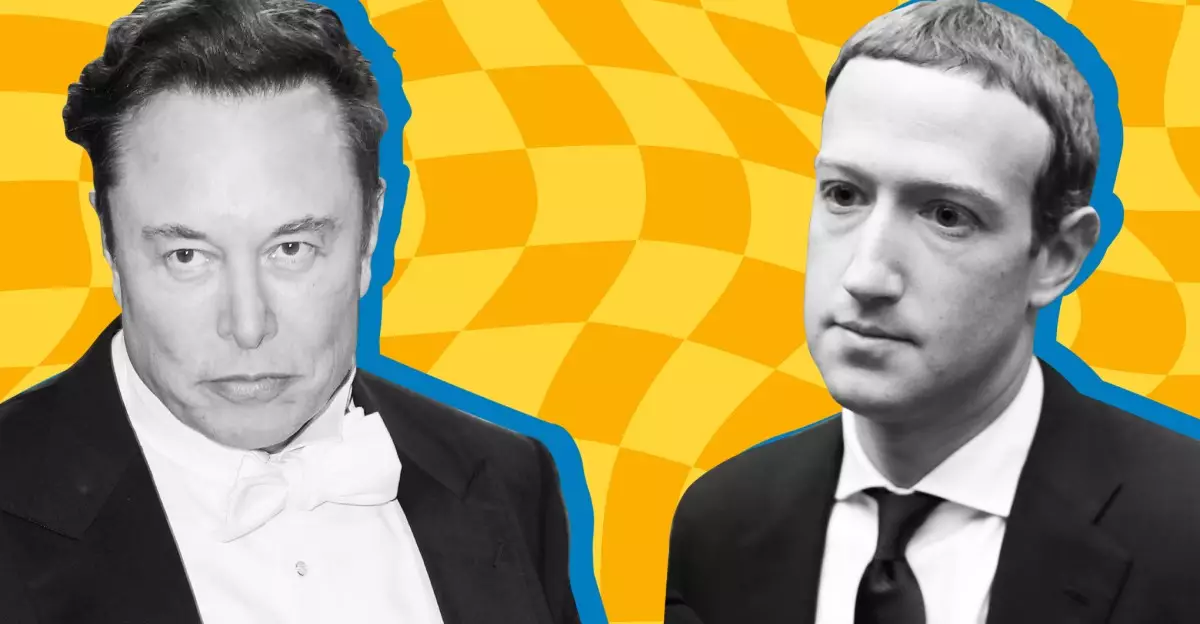In a daring and humorous twist, crosswalk buttons across several California cities have been transformed by an unexpected source: artificial intelligence. Over the weekend, a group of pranksters reportedly hacked city infrastructure to inject the voices of influential tech CEOs, Elon Musk and Mark Zuckerberg, into crosswalk signals. The incidents occurred in major tech hubs like Palo Alto, Redwood City, and Menlo Park, effectively employing the high-profile personas of these billionaires to engage the public in unexpectedly cheeky dialogues. What makes this incident stand out is not just the sheer audacity of the prank but also the implications it has on public perception of these tech moguls, the ethical considerations surrounding AI, and the consequences of digital mischief.
Visitors to the crosswalks were greeted with AI-generated monologues—Musk’s voice lamenting about loneliness while coaxing passersby into a strange friendship and Zuckerberg’s voice unapologetically bragging about “undermining democracy.” Although some might laugh at the absurdity, the prank raises questions about the effectiveness of AI in reflecting human emotions and motivations, albeit humorously. This peculiarity leads us to ponder not only the ethical dimensions of AI-generated content but also how public figures like Musk and Zuckerberg are viewed, especially given their controversial reputations.
Satire or Social Commentary?
The fact that the voices in question could effortlessly parody their real-life speakers suggests a profound disconnect between how these figures project themselves and how they’re perceived by the public. The choice of phrases like “Will you be my friend?” and comments about “cooking our grandparents’ brains” taps into the online zeitgeist that views these CEOs as both creators and destroyers. This exercise in satire might be dismissed as mere pranksterism, but beneath the laughter lies a critique of tech culture, digital ethics, and the widespread skepticism surrounding AI technologies.
Both Musk and Zuckerberg are infamous for their polarizing contributions to technology and society. Musk’s ventures, ranging from Tesla to SpaceX, have often sparked discussions on ambition, innovation, and environmental impact, while Zuckerberg remains at the center of debates surrounding privacy and social responsibility with Meta (formerly Facebook). The adoption of their voices in this playful manner illustrates a public yearning to reclaim the narrative—to laugh at the intense pressures and misconceptions surrounding these tech leaders.
The Potential Risks of AI Mimicry
While the prank may incite chuckles among observers, the implications of AI-generated voices extend beyond entertainment. As artificial intelligence continues to evolve, the ability to mimic a person’s speech patterns and mannerisms accurately raises ethical alarms. There’s a fine line between harmless parody and potential misuse. Digital impersonations can easily veer into malicious terrain where misinformation spreads or someone’s identity is misrepresented, amplifying real-world consequences.
Hackers have historically exploited vulnerabilities in systems, but this twist—targeting public infrastructure with AI voices—blurs ethical boundaries. What was once a lighthearted prank might inspire copycat attempts that threaten public trust. The incident underscores the need for stringent regulations surrounding AI technologies to mitigate risks while allowing room for creative expression. Cities like Palo Alto are already investigating these disturbances, highlighting the urgency of protecting public resources from hack-tivist interventions.
Public Perception and Digital Disruption
This incident is emblematic of a broader cultural phenomenon where public figures are scrutinized, analyzed, and often mocked in digital spaces. The playful hijacking of crosswalk buttons served to turn the mundane into a commentary on the greater tech landscape. As the lines blur between admiration and disdain for tech giants, the public engages in a digital playground where satire captures the zeitgeist of the moment.
Emerging technologies, especially AI, serve as tools for both creation and disruption. This malicious yet humorous endeavor challenges our notions of celebrity culture, responsibility, and accountability in tech leadership. Just as the voices of Musk and Zuckerberg filled the air at pedestrian crossings, they represent a paradox where adoration can quickly flip to derision in the digital age.
By engaging with socio-political issues through satire and digital expression, the public displays an undeniable hunger for authenticity. As technology continues to evolve, so too will the methods by which we engage with it, illustrating that even tech moguls are not above the whims of societal commentary. The absurdity of the situation reveals that ultimately, while AI may imitate human voices, it is humanity that wields the creative power to twist technology for both humor and critique.


Leave a Reply